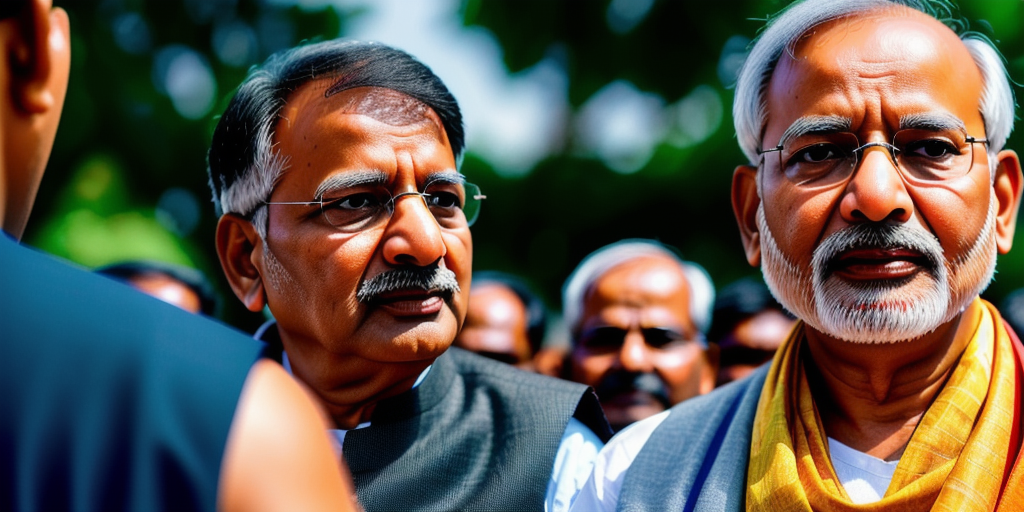
14 PLI sectors protected under trade agreement between India and UK
How did your country report this? Share your view in the comments.
Diverging Reports Breakdown
14 PLI sectors protected under trade agreement between India and UK
The India-UK comprehensive economic and trade agreement (CETA), signed on Thursday, provides for gradual tariff reduction on India’s strategically important products. The agreement has provisions to protect 14 production-linked incentive (PLI) sectors such as electronics, mobile manufacturing, white goods, drugs intermediaries, auto components, specialty steel, solar modules and drones for five to 10 years. India has carefully tailored its concessions to balance foreign access with domestic sensitivities, says Ajay Srivastava, founder of Global Trade Research Initiative (GTRI) CETA will not have much impact on PLI sectors as manufacturing is a costly preposition in the UK and it cannot compete with India’s cheap labour, he adds. India will cut duties on alcoholic drinks from the UK, including gin and whisky, by five years by rising from 10,000 to 19,000 units by 15 years. This opens a path for UK brands like Jaguar and Land Rover, and sets a precedent for future auto concessions, he says.
The India-UK comprehensive economic and trade agreement (CETA), signed on Thursday, provides for gradual tariff reduction on India’s strategically important products, particularly those where domestic capacity is being built under flagship initiatives such as the Make in India scheme and PLI. Thus, they have protection at least between 5 and 10 years, said the officials cited above, requesting anonymity.
Also read: Pastries, pet food, alcohol: What will get cheaper after India-UK trade deal
“Strategically important products, particularly those where domestic capacity is being built under flagship initiatives like PLI, concessions are made under CETA over periods ranging from five to ten years with gradual tariff reduction,” an official aware of the matter said.
According to CETA’s schedules of the tariff commitments, while pushbutton type of telephone sets from the UK will see tariff elimination from the date of entry into force (EIF) of the agreement, basic cell phones (HS code 85171400) will have duty protection for 10 years and smartphones (HS code 85171300) are in the exclusion list. Both basic cell phones and smartphones currently attract 20% customs duty in India. A 10-year protection means the duty shall be removed in 10 equal annual instalments beginning on the date of entry into force of CETA.
Also read: India to have freer access to UK market as landmark deal signed
Mobile phone manufacturing, a key component of the large-scale electronics manufacturing (LSEM) under the production linked incentive (PLI) scheme. Launched in April 2020, LSEM has already transformed India from a net importer of smart phones to a net exporter. The scheme helped India to become the second largest mobile manufacturer in the world with ₹5.45 lakh crore worth of production in 2024-25, including ₹2 lakh crore of exports in that financial year.
Similarly, a 10-year protection is available for domestic manufacturers of drones (remote-controlled unmanned aircraft), which is the fourteenth sector under the PLI scheme. The other sectors under are critical key starting materials and active pharmaceutical ingredients (APIs), medical devices, automobiles and auto components, pharmaceuticals, specialty steel, telecom and networking products, electronic and technology products, white goods, food products, manmade fibre segments and technical textiles, high efficiency solar PV modules, and advanced chemistry cell batteries.
Experts said CETA would not have much impact on PLI sectors as manufacturing is a costly preposition in the UK and it cannot compete with India’s cheap labour.
“India’s PLI sectors have not made any remarkable achievements so far, other than the smartphone manufacturing,” said Ajay Srivastava, founder of Global Trade Research Initiative (GTRI). India has, however, protected most of its key sectors, he added.
Even as India commits to reduce or eliminate import tariffs on nearly 90% of goods originating from the UK under CETA, it “strategically” excluded sensitive items such as tea, coffee, and gold. India currently imposes steep duties of 110% on coffee, tea, and sausages. Srivastava is a former Indian Trade Service officer and was part of the country’s negotiating teams for various FTAs.
“These items are excluded from any tariff relief under CETA, reflecting India’s effort to protect domestic farmers and food processors. While CETA opens the door for UK exporters across a range of sectors, India has carefully tailored its concessions to balance foreign access with domestic sensitivities,” he said.
Government data show that India has safeguarded its sensitive sectors such as dairy, cereals, millets, pulses, vegetables, jewellery, lab-grown diamonds, certain essential oils, critical energy fuels, marine vessels, worn clothing, critical polymers and optical fibres.
According to Srivastava, India’s concessions on the automobile sector will set a precedent for other future FTAs. “For the first time in any FTA, India will lower duties on UK-built passenger vehicles under a Tariff Rate Quota (TRQ). Duties on luxury and mid-size cars will drop from 100%+ to 10% over 15 years, within quotas rising from 10,000 to 19,000 units by year five. This opens a path for UK brands like Jaguar and Land Rover, and sets a precedent for future auto concessions,” he said.
India will cut duties on alcoholic drinks from the UK—including whisky, vodka, and gin—only for bottles priced above $6 per 750ml. For qualifying imports, tariffs will fall from 110% to 75% in year one, and to 40% by year 10, he said. Some lines drop from 150% to 75%. Over 30 products are covered, giving premium UK spirits better access while shielding low-cost segments, he added.
